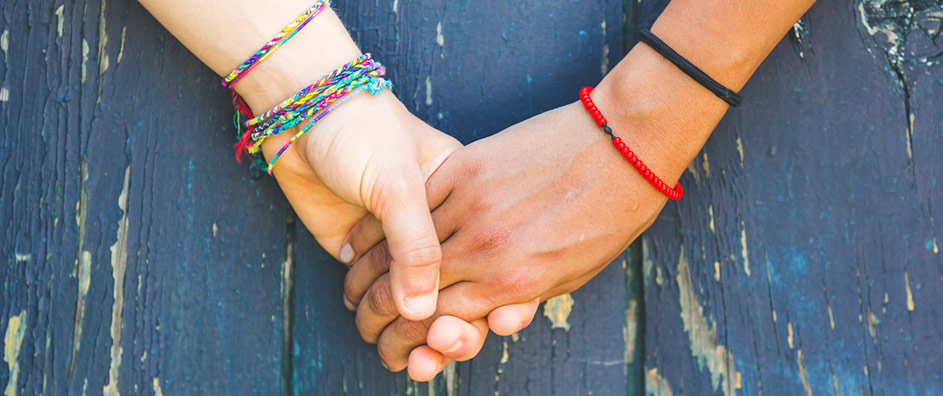In a world still grappling with the enduring specter of racial division, how can individuals genuinely bridge the gaps that separate us? This inquiry not only probes the fundamental tenets of human interaction but also addresses the vital Baha’i teachings regarding unity and the dissolution of prejudice. The story of a Baha’i navigating these complex dynamics amplifies the relevance of these ideals. Embarking upon this journey, one witnesses a tapestry woven from threads of empathy, understanding, and collective responsibility.
The Baha’i Faith espouses that humanity is a single entity, and its teachings convey that the elimination of prejudice constitutes a pivotal element in fostering unity. Each follower is called to cultivate an atmosphere of acceptance while actively confronting societal biases. Central to this mission is the principle of “oneness of humanity,” a clarion call urging individuals to rise above superficial distinctions such as race, ethnicity, and culture. In how many moments do we fail to recognize our shared existence, focusing instead on differences that are merely circumstantial? It is this very challenge that Baha’is often encounter, and it manifests vividly in personal stories of commitment to these lofty ideals.
The narratives of Baha’is engaging with racial issues often illustrate the profound impact of personal encounters. For instance, consider an individual raised within a homogenous community. Their upbringing may have instilled an implicit sense of the “other,” fostering an unconscious bias that belies the teachings of their faith. When this individual encounters a diverse group of individuals, each with their own unique backgrounds and life experiences, their worldview begins to morph. This evolution is not devoid of discomfort; it prompts introspection and, often, existential questioning about long-held beliefs. Yet, therein lies an opportunity for growth and transformation.
Such encounters can be likened to the experiences depicted in classical literature, where protagonists journey through trials that ultimately lead to enlightenment. The story of one Baha’i individual epitomizes this transformative experience. Upon moving to a multicultural urban center, they were thrust into environments rich in diversity. Their initial trepidation gradually dissipated as they engaged meaningfully with neighbors, co-workers, and members of their local Baha’i community. Each interaction served as a microcosm of a larger dialogue, challenging preconceived notions while inviting the individual to reflect on their own biases.
As conversations unfolded, the implicit challenge embedded within the Baha’i teachings became apparent: the necessity of active participation in combating racial prejudice. Accepting the onus of personal transformation is paramount. A Baha’i is not merely an observer but rather a catalyst for change. This narrative underscores that profound understanding requires vulnerability—a willingness to confront one’s discomfort and biases while fostering open dialogue with those from different backgrounds.
Simultaneously, the tenets of the Baha’i Faith encourage individuals to harness their agency in advocating for justice and equality. This is no small feat, particularly in environments entrenched in systemic inequities. The individual’s newfound commitment to unity and justice often propels them toward community service initiatives that promote inclusivity and educate others about the perils of racism. Through intentional outreach, educational workshops, and interfaith dialogues, Baha’is actively engage in the Herculean task of dismantling prejudice.
A particularly noteworthy aspect of the Baha’i narrative is the emphasis on collective action. No individual can singularly bear the weight of societal change. Rather, Baha’is are called to collaborate, championing a community where diverse voices converge. Herein lies the strength of the Baha’i community: the reinforcement of one another’s resolve in the face of adversity. Challenging the status quo becomes a shared endeavor, whereby each member contributes to a mosaic of perspectives and experiences enhancing collective resilience.
The inexorable linkage between personal transformation and societal change brings forth the vital concept of education. Education, in the Baha’i context, is not solely about acquiring knowledge; it encompasses nurturing a profound sense of empathy and understanding. As individuals delve deeper into the teachings, they gradually disentangle the intricate fibers of racial prejudice, replacing ignorance with enlightenment. This commitment to education serves as a powerful tool in dismantling entrenched societal norms.
Moreover, in the Baha’i worldview, dialogue emerges as an essential mechanism for fostering understanding and reconciliation. Engaging in open conversations about race and identity, albeit uncomfortable, is integral for healing and collaboration. Such dialogues allow individuals to share their experiences, fostering mutual respect and compassion. The Baha’i principle of “truthfulness” becomes vital here, guiding participants to engage sincerely and openly. As dialogue unfolds, participants often find common ground upon which to build authentic relationships.
It is crucial to recognize that the Baha’i journey towards racial unity is fraught with challenges. Moments of misunderstanding and resistance are inevitable. Yet, such experiences should be perceived not as obstacles but as opportunities for learning and growth. Each setback can lead to a deeper understanding of oneself and others, reinforcing the ideal that true unity necessitates ongoing effort and reflection.
In conclusion, the journey of reaching across the racial divide within the Baha’i framework is both profound and complex. By embracing personal transformation, engaging in active dialogue, and fostering collective action, Baha’is contribute to the creation of a world marked by unity, acceptance, and love. The challenge remains: will we rise to the occasion and proactively work towards bridging the divides that separate us? Ultimately, the answer lies within each individual’s willingness to engage, understand, and change. In doing so, we not only honor the Baha’i teachings but also take significant strides toward achieving a more harmonious society.
